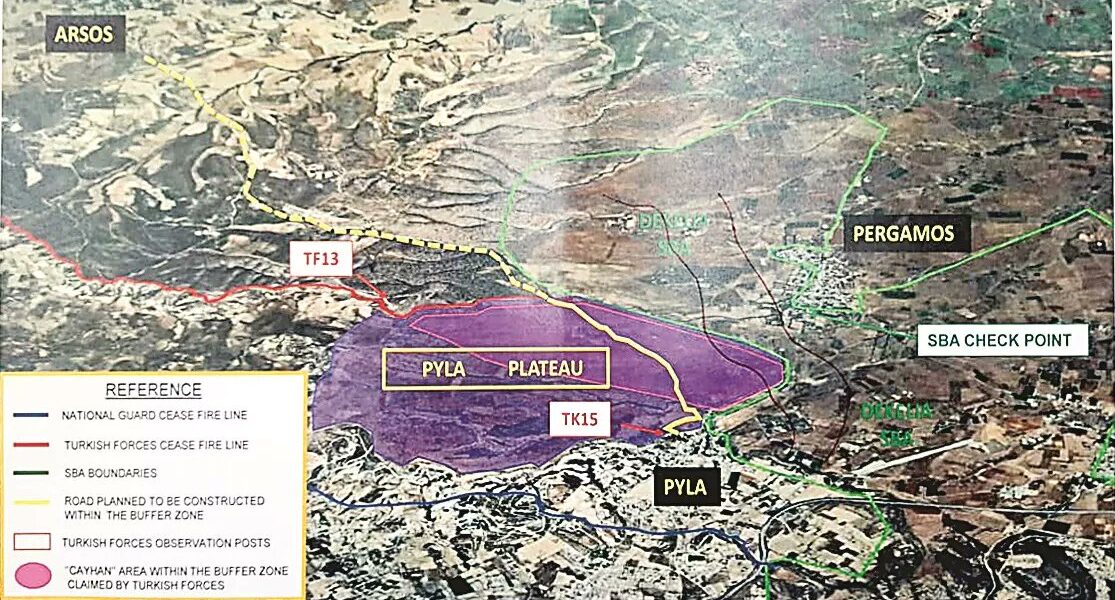NICOSIA, CYPRUS — The United Nations mission in Cyprus has announced its intention to prevent the construction of a road by Turkish Cypriots that would encroach upon a U.N.-controlled buffer zone, potentially escalating tensions in the region.
The U.N. peacekeeping force, known as UNFICYP, plans to utilize nonviolent measures to "block or frustrate construction of the road," stated Aleem Siddique, spokesperson for the U.N. peacekeeping force. He added that the road construction contradicts the mission's mandate to maintain the status quo within the buffer zone.
The road's construction began earlier in the day, aiming to connect the Turkish Cypriot village of Arsos in the north with the Greek Cypriot village of Pyla, located south of the buffer zone within the Greek Cypriot south. This region houses the internationally recognized government of the island.
By providing Turkish Cypriots with a direct route to Pyla, the road bypasses a checkpoint near a British military base – one of two bases retained by the U.K. since Cyprus gained independence from British colonial rule in 1960.
The construction of this road, spanning 180 kilometres (120 miles) along the buffer zone, has raised concerns among Greek Cypriots, who view it as having potential military implications at a sensitive location.
The buffer zone's status quo has been upheld under the U.N. mission's mandate since 1974 when Turkey intervened following a coup attempt by Greek junta-backed supporters advocating for union with Greece.
The road construction represents a significant breach of the status quo, stated Cyprus government spokesperson Constantinos Letymbiotis, emphasizing gravity.
Collaborating with U.N. peacekeepers, the Cypriot government is taking steps to thwart road construction. The Cypriot government has been striving to revive stagnant negotiations to resolve the island's division. It warned that the construction's negative repercussions could affect ongoing talks and Turkey's relationship with the European Union.

